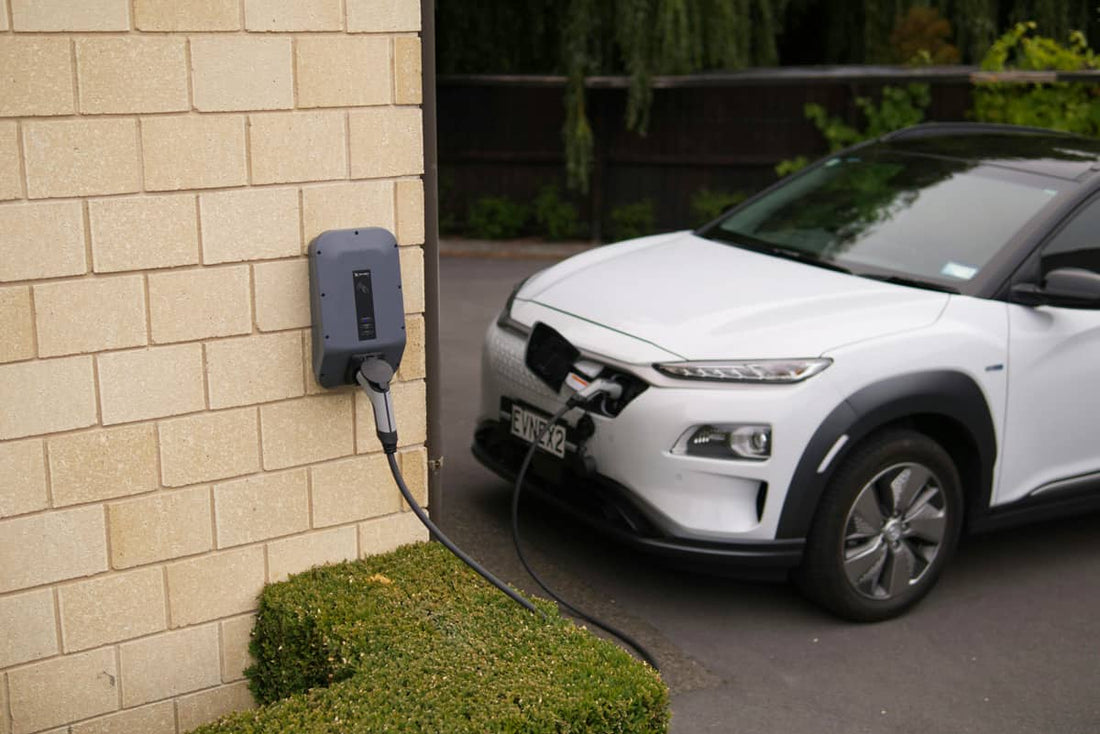With the rising popularity of electric vehicles (EVs), many homeowners are considering installing EV chargers at home. Having a home charger is convenient and can save time and money in the long run.
Let’s explore the costs involved in installing an EV charger at home, focusing on the common Level 2 charger. Plus, we’ll answer key questions about the installation process.
How Much Does It Cost to Install an EV Charger at Home?
The cost to install an EV charger at home varies depending on several factors, including the type of charger, electrical upgrades needed, and labor costs. Read on to learn more.
Factors Affecting EV Charger Installation Cost
- Charger Type: Level 2 chargers are the most common for home use and typically cost more than Level 1 chargers, but provide faster charging times.
- Electrical Upgrades: Installing a Level 2 charger may require upgrading your electrical panel to handle the additional load, which can cost between $500 and $1,500.
- Installation Labor: Professional installation costs can range from $300 to $1,000, depending on the complexity of the job and local labor rates.
Level 2 Charger Installation Cost
With the above factors in mind, the total cost for a Level 2 charger installation usually ranges from $800 to $2,500.
How Much Does It Cost to Install a 240V Outlet for an Electric Car?

In addition, installing a 240V outlet, necessary for a Level 2 charger, typically costs between $300 and $800. This cost includes the price of the outlet itself and the labor for installation. If your electrical panel needs an upgrade, this will add to the overall cost.
Does Installing an EV Charger at Home Increase Home Value?
Yes, installing an EV charger at home can increase your home's value. As the adoption of electric vehicles grows, having a home charger is becoming a desirable feature for potential homebuyers.
What are the Benefits of a Home EV Charger?
You might be thinking, is an electric home charger worth it? Here are some of the benefits of a home EV charger:
- Convenience: Charging your vehicle at home eliminates the need to visit public charging stations.
- Cost Savings: Home electricity rates are often cheaper than public charging rates, leading to long-term savings.
- Increased Home Value: As mentioned earlier, a home charger can enhance your property's value.
Is It More Expensive to Charge an EV at Home?
As mentioned, charging an EV at home is generally less expensive than using public charging stations. The cost per kilowatt-hour (kWh) at home is typically lower than the rates charged at public stations. Additionally, many utility companies offer special rates for EV owners, further reducing the cost of home charging.
Additional Electric Home Charging Station Considerations
- Can I Install an EV Charger Myself?: While some homeowners may have the skills to install a charger themselves, it is recommended to hire a professional electrician to ensure the installation is safe and up to code.
- What Permits Are Required for EV Charger Installation?: Depending on your location, you may need permits for the installation. Check with your local building department for specific requirements.
Dive Deeper into Electric Home Charging Resources
Installing an EV charger at home is a valuable investment for electric vehicle owners. While the initial cost can vary, the convenience, future savings, and potential increase in home value make it worthwhile.
If you’re looking to learn more about electric cars, check out the EV Hover blog today!
